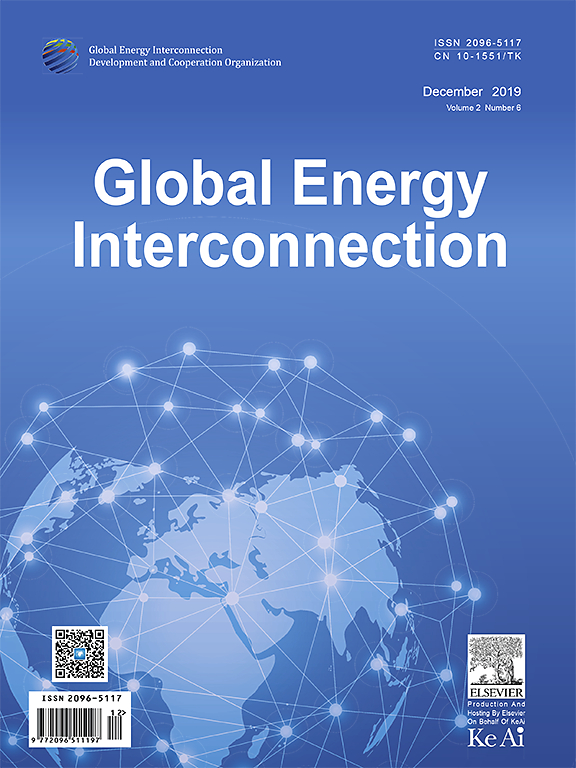Recommended articles:
-

-
Global Energy Interconnection
Volume 4, Issue 6, Dec 2021, Pages 531-531
Message from the Guest Editor-in-Chief
Keywords
Abstract

Jinghan He received her M.Sc.degree in electrical engineering from Tianjin University, Tianjin, China, in 1994, and the Ph.D.degree in electrical engineering from Beijing Jiaotong University, Beijing, China, in 2007.She has been a professor with the School of Electrical Engineering, Beijing Jiaotong University since 2000.She is IEEE Fellow and currently serving as the Chairman of IEEE PES China Membership Committee and the Chairman of IEEE PES China DC Transmission Control & Protection Technical Subcommittee.Her research interests include fault analysis, protection and control of AC/DC hybrid power grids, new energy distribution network and railway traction power supply systems.

Meng Li received his Ph.D.degree in electrical engineering from North China Electric Power University, Beijing, China, in 2018.He visited Georgia Institute of Technology from 2019 to 2020 as a visiting scholar.He is an associate professor with the School of Electrical Engineering, Beijing Jiaotong University.He is selected in “Young Talent Cultivation Program” of Beijing Jiaotong University.His research interests include DC grid fault analysis, protection, reclosing.
Energy, the material basis for the survival and development of human society, has a particularly important strategic position in the national economy.In the face of the serious challenges posed by the global climate to human survival and development, it has become the consensus of all countries to adhere to green and low-carbon development and positively respond to climate change.In September 2020, at the United Nations General Assembly, China put forward the “double carbon” goal of “striving to reach the peak of carbon dioxide emissions by 2030, and striving to achieve carbon neutrality by 2060.” To achieve the goal, the key point is to adjust the energy structure and energy saving, with the reform of power system as the core.Controlling the fossil energy consumption, focusing on improving the efficiency of energy use, vigorously developing renewable energy sources, and building a new power system as the mainstay are important methods to support the process of achieving the “double carbon” goal.
The new power system will involve the remarkable characteristics of a high proportion of renewable energy, AC/DC hybrid connection, and a large number of power electronic equipment.The inertia characteristics of the power system will change essentially.Fault characteristics becomes more complex, showing non-linearity and controllability.Some traditional protection principles, which assume system linearity and utilize a certain feature to identify faults, may be challenged in the new power systems.Therefore, it is urgent to study how protection and control technologies react to the challenge in the new power system.
In this context, the Global Energy Interconnection aims at working for the special issue “Protection and control technologies of new power system”.This special issue includes 10 papers by authors from various renowned universities and research institutes in the field of relay protection and power system operation and control, including Beijing Jiaotong University (China), Tianjin University (China), Xi’an Jiaotong University (China), North China Electric Power University (China), Northeast Electric Power University (China), University of Birmingham (UoB, UK), Jiangxi Normal University (China), Guangdong Electric Power Research Institute (China), and State Grid Big Data Center (China).
This special issue covers various diverse and relevant topics such as relay protection, fault location, reclosing technology, modeling of a large power grid, renewable energy integration control, state estimation of batteries and artificial intelligence application in new power system.
We believe that this special issue will help to reveal the impact of integration of large-scale renewable energy sources, hybrid AC-DC connections and high proportion of power electronics in new power systems.Further, the issue hopes to make full use of protection and control technologies to enhance the safe and stable operation of the power system and build a strong and intelligent new power system.
Fund Information
